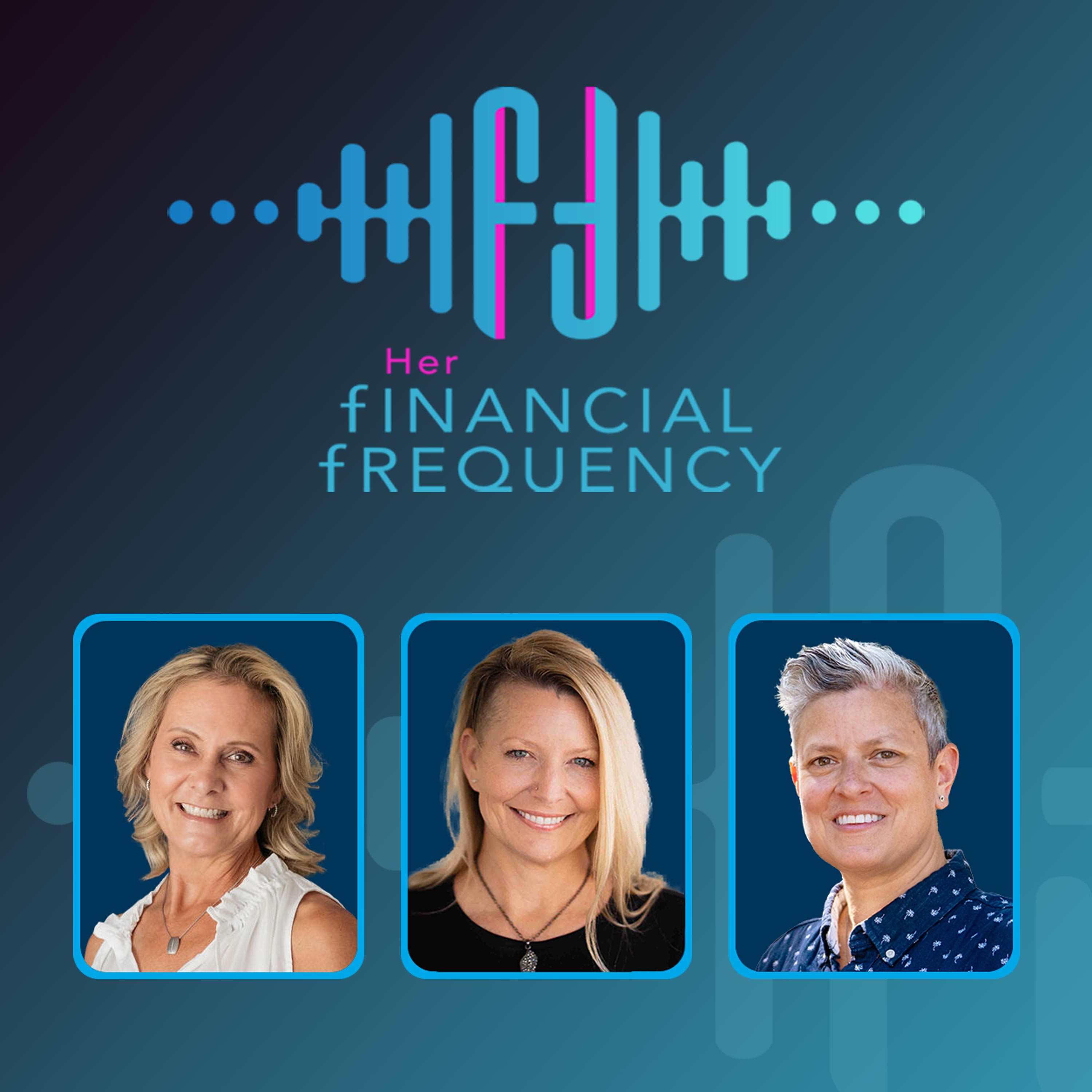S1 EPISODE #6
From HGTV Dreams to Debt Funds: Barbie & E's Money Story + Fund Pros & Cons
Welcome to Her Financial Frequency: Your New Go-To Podcast for Women and Wealth

Published: August 5th, 2025
By: The Her Financial Frequency Team
Joining today is a very special guest, E, who supports the group behind the scenes in all things technology. Together, E and Barbie, share not only the mechanics of different funds but also their personal money story—how they went from living paycheck to paycheck to building a real estate investment fund.
Our Journey: From HGTV Dreams to Debt Funds
Like many, we started with the traditional financial path: college, careers, and 9-to-5 jobs. But despite working hard, we found ourselves with no savings, mounting credit card debt, and no clear retirement plan. A turning point came when E stumbled across a commercial about financial freedom through real estate while home with the flu. That moment sparked a journey that led us from flipping single-family homes to investing in apartment complexes, joining masterminds, and eventually launching our own debt fund.
Through trial and error—including learning hard lessons about partnerships, underwriting, and market shifts—we discovered the importance of:
> Building relationships with trustworthy partners
> Diversifying investments across asset types
> Understanding mindset—shifting from scarcity to abundance
This journey taught us that investing is not just about numbers. It’s about energy, alignment, and intention.
Types of Investment Funds (With Pros and Cons)
Here’s a breakdown of the most common types of funds we discussed, with their advantages and drawbacks:
1. Mutual Funds
Pros:
Professionally managed
Diversified portfolio
Liquidity and ease of buying/selling
Good for long-term investing
Cons:
Higher fees (expense ratios)
Limited control over investments
Returns may be lower than expected
2. Index Funds
Pros:
Low fees
Broad diversification
Transparency and simplicity
Strong historical long-term performance
Cons:
Cannot outperform the market
Less flexible during market changes
3. Venture Capital Funds
Pros:
Potential for massive returns
Ability to support innovative startups
High growth potential
Cons:
Extremely high risk
Long lock-up periods
Typically limited to accredited investors
4. Private Equity Funds
Pros:
Potential for significant returns
Focus on turning around underperforming businesses
Diversification beyond public markets
Cons:
High minimum investment
Long holding periods (5–10+ years)
Complex fee structures
5. Hedge Funds
Pros:
Potential for high returns
Flexible investment strategies
Can be uncorrelated to broader market trends
Cons:
High risk and volatility
Accredited investors only
Expensive fee structures (often 20% of profits)
6. Debt Funds
This is where our current focus lies, and for good reason.
Pros:
Steady, predictable income (“mailbox money”)
Lower volatility than equity funds
Offers diversification across multiple asset types
Provides protection in down markets
Cons:
Lower returns compared to high-risk funds
Performance influenced by interest rate changes
By pooling investor money into loans for businesses, real estate projects, and other ventures, debt funds create a win-win: capital for business operators and consistent distributions for investors.
Key Take-aways:
> Diversification is essential. Each fund type carries unique risks and rewards.
> Mindset matters. Shifting from scarcity to abundance opens doors to new financial opportunities.
> Trust your team. The right partnerships and mentors can prevent costly mistakes.
> Debt funds are powerful tools. They deliver steady returns and solve real problems in today’s market.
Final Thoughts:
At Her Financial Frequency, our mission is to show women that wealth isn’t just about numbers—it’s about energy, alignment, and intention. Whether you’re starting with mutual funds or considering private equity, there’s no one “right” path. The key is understanding your goals, your risk tolerance, and the story you want your money to tell.
Want More?
Subscribe to the podcast so you never miss an episode.
Drop your investing questions in the comments — we’ll cover them in future episodes.
Share this blog with a friend who’s ready to start investing.
Remember: Wealth isn’t just about numbers — it’s about energy, alignment, and intention.
Her Financial Frequency: Helping women stop playing small and start building legacy wealth with purpose.
Follow us on Instagram: @HerFinancialFrequency
Have questions or stories to share? Contact us at [email protected].
"Be humble, be teachable and always keep learning."
— John Wooden
Disclaimer: This content is for informational purposes and to gauge potential investor interest. This content is not intended to be financial advice, a general solicitation, or a securities offering of any kind. Prior to making any decision to contribute capital, all investors must review and execute all private offering documents, including the Private Placement Memorandum and its exhibits, which contains the complete information about any investment opportunity. Nothing in this content should be interpreted as a digital or electronic signature that can be used to authenticate a contract or legal document.

